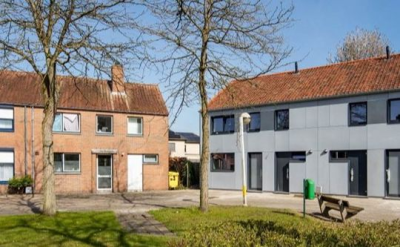SPARKLE

Learn how to turn your green transition goals into long-term sustainable strategies and actions
The new and free SPARKLE online training “Planning the Energy and Climate Transition for Cities”, will enable you to combine energy transition, climate resilience, and circular economy goals with actionable strategies. Practical tools and real-world examples will equip and inspire you throughout a three-course learning journey.
The courses will be translated in French, Portuguese, Italian, Spanish, Croatian, and Lithuanian.
ACR+ is part of the educational team.
If you want to shape the future of your territory and align planning with energy transition, climate resilience, and circular economy objectives, this course is for you. Through five practical and interactive modules, you’ll explore how to embed energy and climate priorities into spatial planning processes, leverage data and cross-sectoral collaboration, and develop integrated plans tailored to your local context. By the end of the course, you’ll be able to:
- Understand why integrated planning is essential to address today’s energy and climate challenges.
- Identify how to incorporate renewable energy, energy efficiency, and heating/cooling into spatial plans.
- Learn how to plan for floods, heatwaves, and other climate-related risks.
- Explore how to embed circularity into your planning strategies.
- Design and implement an integrated planning process from start to finish.
Whether you’re just starting to structure a city’s climate action plan or refining pathways toward net zero, this course will help you make data a strategic tool that guides better decisions, builds credibility, and accelerates impact. Over four practical modules, you will understand why data is essential for setting credible climate objectives, how to establish baselines and model future trajectories, and how to select and process the right types of data for your city’s needs. More specifically, you’ll learn to:
- Identify and evaluate the most relevant data sources for urban, climate and energy planning.
- Create emissions baselines and define realistic, science-aligned climate targets.
- Clean, compile, and process data to inform decisions and model future scenarios.
- Collaborate with data providers and improve access to technical and operational data.
- Communicate data effectively to engage citizens and build support for climate action.
What is transition management and how can it support your city’s ambition to become just and climate-neutral?
This micro-course sets the ground for understanding and applying transition management in cities. Inspiring case studies from all over Europe will show you how this is a robust approach for transformative and participatory urban planning towards sustainability. At the end of the course, you’ll be able to:
- Understand the principles of transition management and how they differ from traditional planning.
- Map systems and identify key actors to identify leverage points for change.
- Co-create long-term visions and back-cast to define concrete steps.
- Set up transition teams and arenas to foster inclusive dialogue.
- Design and support experiments that contribute to systemic transformation.












